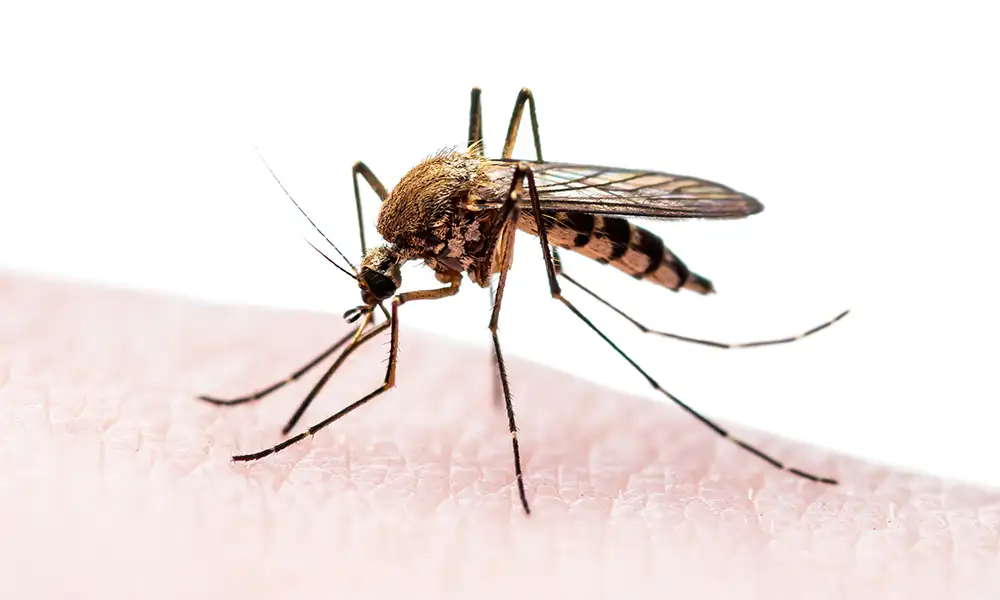Understanding the Connection between Sleep and Diabetes
- August 12,2020
- 20 Min Read

One of the most serious health consequences that come from disrupted, poor quality sleep is a significantly increased risk for diabetes. The relationship between sleep and diabetes is complicated, and scientists are still working to understand all the ways that sleep and circadian rhythms (also known as your internal biological clock) affect this disease. That said, we have some hints, since we know sleep has a powerful connection to metabolism (how our body uses food for energy), to hormones that regulate appetite and eating patterns, and to the body’s use of blood sugar and insulin.
Sleep is essential for metabolic health
Sleep is an important time for restoration and repair of the body at a cellular level. That includes the maintenance of the immune system (which keeps us from getting sick) and of the body’s metabolic functions. Stages 3 & 4 called deep or slow-wave sleep appears to be especially important to the body’s ability to use insulin to regulate blood sugar.
Poor sleep affects diabetes both directly and indirectly, by triggering changes to hormones, contributing to weight gain and obesity, and causing changes to behaviour and lifestyle.
- Sleep disruption increases the risks of type 2 diabetes
- People with diabetes are much more likely to have obstructive sleep apnea and other sleep disorders
- The more severe sleep problems are, the more severe and less well-controlled diabetes is likely to be.
There’s a lot of attention paid to short sleep and its risks. And rightly so. At the middle age and during older adulthood, people who report not getting enough sleep are roughly twice as likely to be diagnosed with type 2 diabetes, according to several large-scale studies.
Over the past several decades, we’ve seen a rise in the number of people with chronic sleep deprivation, obesity, and diabetes. That’s not coincidental, the rise in these serious public health problems such as sleep deprivation, obesity and diabetes appear to be connected.
Obesity is a prime risk factor for diabetes and overwhelming scientific evidence shows poor sleep contributes to obesity. Obesity has doubled worldwide over the past nearly four decades, and during that same period, rates of insufficient sleep have increased.
But not sleeping enough isn’t the only sleep problem that can increase the risk for diabetes and compromise its effective management. We know from scientific research that in addition to a lack of quantity, poor sleep quality can also interfere with the body’s metabolic functioning and elevate risks for the disease.
And scientists are increasingly investigating the role circadian rhythm (your biological clock) plays in the development of diabetes. Circadian rhythm affects so many areas of your health, many of which you might not be aware of. In addition to sleep-wake cycles, circadian rhythm also regulates hormones that affect metabolism, appetite, insulin, and blood glucose. When circadian rhythms are out of sync, the body’s metabolic health can decline and a risk for diabetes can increase.
When we think about sleep and its influence over diabetes, it’s important to consider not only the amount of sleep but sleep quality, sleep habits and sleep patterns.
Despite the increasingly strong evidence linking sleep to diabetes, sleep problems remain an overlooked factor in the risks and management of the disease. Let’s take a closer look at the ways poor sleep can affect the development of diabetes and the health of people who are living with the condition.
Poor sleep interferes with insulin and blood glucose
Among the more recent discoveries scientists have made about the sleep and diabetes connection is this important one: poor sleep changes how the body produces and uses insulin.
Insulin is a hormone produced by the pancreas that enables cells in muscles and tissues of the body to absorb glucose from the bloodstream to be used for energy. In this way, insulin regulates blood glucose or blood sugar helping maintain a glucose homeostasis that is neither too high (hyperglycemia) nor too low (hypoglycemia). I often tell my patients to think of insulin as the key to a lock, or the doorman to a hotel, allowing glucose to exit the blood and enter cells.
Cells can become resistant to insulin making them less able to absorb glucose from the blood. In this case, our “key” may not be working as smoothly as we would like. This leads to persistently high levels of glucose (i.e., sugar) in the blood which, in turn, triggers the body to increase production of insulin, because of high blood sugar. Sometimes, the body under-produces insulin, which also results in high blood sugar. Over time, this dynamic of high blood sugar and insulin resistance (or lack of sufficient insulin production), can lead to the development of type 2 diabetes. In type 1 diabetes, a person’s body can’t make insulin naturally (very different, but also affected by sleep).
Recent research indicates that insulin, like many other hormones and body systems operates on a daily cycle. Scientists now think the body’s circadian clock directs this cycle by affecting the timing of the production and release of insulin from the pancreas. And there also appear to be certain times of the day when cells are more and less sensitive to insulin. Disruptions to circadian clocks which often go hand-in-hand with sleep problems appear to reduce the effectiveness of insulin and over time, contribute to insulin resistance. Because insulin’s job is to regulate blood glucose, changes to insulin create changes to blood sugar.
Circadian rhythms can be thrown off sync by:
- Irregular sleep schedules (like shift work, being a new parent, etc.)
- Patterns of poor quality, restless sleep (from the effects of your environment or use of caffeine)
- The presence of sleep disorders (insomnia and sleep apnea)
- Too much or too little sleep
Sleep itself affects insulin activity and blood sugar
According to a growing body of research, insufficient and poor-quality sleep can decrease insulin sensitivity and decrease glucose tolerance (a measurement of how quickly and effectively the body removes glucose from the bloodstream). And it doesn’t take months or years for these negative effects to kick in.
A single night of total sleep deprivation decreased insulin sensitivity more than 6 months of a high-fat diet, according to a 2016 study.
Partial sleep deprivation, the kind of chronic sleep debt many people experience on a routine basis, decreases the body’s ability to use insulin effectively and keep blood sugar balanced. After a week of sleeping 5 hours a night, a group of healthy men saw significant reductions to insulin sensitivity, reported scientists in a 2010 study.
Living with a chronic sleep loss also diminishes glucose tolerance, making the body less effective at converting glucose to energy. And disrupted sleep interferes with the body’s ability to regulate glucose throughout the day and night.
We know less about the impact of oversleeping on insulin and glucose. But recent research suggests getting too much sleep also has negative effects on insulin sensitivity and glucose tolerance.
Sleep affects other hormones that influence metabolic health
Sleep deprivation also increases the production of cortisol, which can make cells more resistant to insulin. Lack of sleep also triggers changes to other hormones, including thyroid stimulating hormone (TSH) and testosterone, which can lead to decreased insulin sensitivity and higher blood glucose.
Melatonin, which plays such a critical role in maintaining regular sleep patterns in keeping our circadian clocks synchronized, also appears to affect insulin. We’ve known for several years that certain gene variants associated with melatonin receptors are strongly linked to higher risks for type 2 diabetes. Recent research has shown higher levels of melatonin reduce the ability of insulin-making cells in the pancreas to release insulin and that people with those genetic variants experience this insulin-suppressing effect more strongly.
All these changes in sleep and circadian-related changes to insulin and blood sugar, and other hormones that affect metabolism occur in healthy and non-diabetic people, bringing them closer to prediabetes and eventually diabetes. These sleep-related changes also happen in people who have diabetes, making the condition harder to treat and control effectively.
Sleep’s role in diet and weight increase the risk of diabetes
Obesity is the single most important predictor in the development of type 2 diabetes. More than 90 percent of people with type 2 diabetes are overweight or obese. Scientists have referred to the simultaneous rise of obesity and diabetes as “twin epidemics.”
Sleep has a strong influence over appetite and eating patterns, exercise habits, and the hormones that regulate hunger and the feeling of fullness. In all these ways, sleep plays a powerful role in risks for obesity. You’ve seen how sleep can affect diabetes directly through its effects on insulin and blood sugar. Sleep also affects diabetes indirectly, because of its impact on body weight.
Poor quality and insufficient sleep alter hunger hormones. When we don’t get enough high-quality sleep, levels of the hormone leptin go down. Leptin is a hormone that helps maintain energy balance in the body. It curbs appetite, sending signals that you’ve consumed enough energy through calorie intake signals that translate into feelings of fullness. Leptin also helps regulate metabolism and the rate at which the body burns fat. Lower leptin levels slow metabolism down. Poor sleep may also make the body resistant to leptin’s appetite-curbing effects. And recent research indicates leptin plays a direct role in regulating blood glucose. Scientists are looking at leptin, not for the first time as a possible treatment for obesity and diabetes. Sleeping well is one way to keep your body supplied with leptin naturally.
At the same time, poor sleep lowers leptin, it also increases levels of another hormone important to energy balance and weight: ghrelin. Sometimes referred to as the “hunger hormone,” ghrelin stimulates appetite, increasing hunger and the desire to eat, and throwing the body’s energy balance off-kilter, with more calories being consumed than burned.
This double-hit of hormone imbalance reduced leptin and increased ghrelin can make it difficult to maintain a healthy weight, leading to weight gain, and an elevated risk for diabetes. It also makes weight harder to control in people with prediabetes and diabetes.
Poor sleep makes us more sedentary. When you’re not rested whether because you’re not getting enough sleep, or sleep is restless and disrupted you tend to expend less energy in physical activity. Regular exercise is one important way to lower risk for diabetes and manage the condition more effectively if you have it.
We eat the wrong things at the wrong times. Lack of sleep creates cravings for high-fat and high-sugar foods which over time can lead to diabetes and makes diabetes more difficult to control. When we are sleep deprived, our brain’s reward centers go into overdrive. We also become more impulsive, and less able to execute complex judgment and decision making, the cognitive functions that enable us to make healthful, moderate food decisions. This makes us more likely to overeat.
Poor sleep also shifts a larger share of daily calorie intake to the evening hours. People who sleep poorly also tend to consume more of their calories later in the day. Night time eating disrupts circadian function, contributing to weight gain and to problems with insulin and blood sugar. Night time eating also disrupts sleep itself, setting up a vicious cycle of disrupted sleep and eating habits.
This article has been adapted from The Sleep Doctor and accessible at: https://www.thesleepdoctor.com/2018/05/08/understanding-the-connection-between-sleep-and-diabetes/
Want to book a test? Fill up the details & get a callback
Most Viewed
Premarital Health Screening
- 20 Min Read
Typhoid - Signs and Symptoms
- 3 Min Read
Home Isolation Guidelines - Covid-19 Care
- 5 Min Read
HLA B27 Detection: Flow Cytometry & PCR
- 1 Min Read














